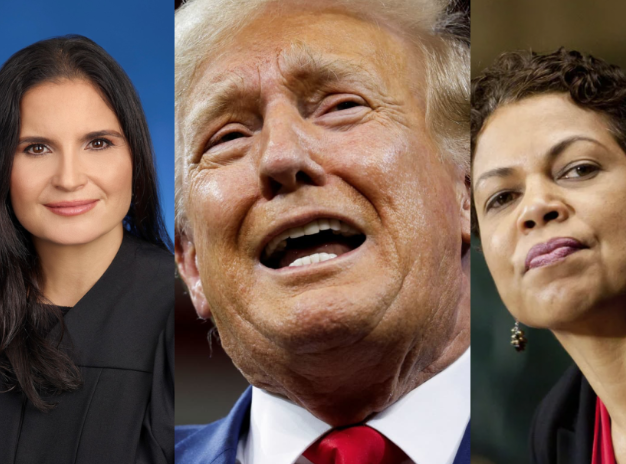Judge Cannon Exposes Explosive ‘24 Election Interference Against Trump

Throughout his 2024 campaign, Donald Trump has faced what can be termed "selective and vindictive prosecution," with the case involving classified documents being the most prominent example.
Judge Aileen Cannon critically addressed this, labeling it as "arbitrary prosecution." She highlighted concerns over the charges against Trump, which are linked to his alleged mishandling of classified documents, contrasting this with similar cases involving key figures like Joe Biden, Michael Pence, and Hillary Clinton, who have not been charged under the Presidential Records Act.
Further examples of what some see as targeted legal actions against Trump include a civil court ruling by Judge Arthur Engoron, imposing a $354 million fine and business restrictions on Trump in New York without a jury's verdict.
The decision has been criticized for several reasons, including the absence of direct victims and the commonality of the real estate valuation practices Trump used.
In another controversial case, E. Jean Carroll was awarded $83 million in damages from Trump despite the jury not finding him guilty of rape. Criticisms of Carroll's account and the New York state's legislative amendment to allow such a civil rape case underscore accusations of legal bias.
The "racketeering" case in Fulton County, Georgia, also stands out, with critics arguing the lack of evidence to support the charges against Trump and his co-defendants.
The controversy is further fueled by the improper disclosure of a phone call with Georgia Secretary of State Brad Raffensperger, which was pivotal in the case against Trump.
Judge Scott McAfee's decision to keep D.A. Fani Willis on the Trump case, despite ethical concerns and her apparent political motivations, adds to the contentious legal landscape Trump navigates. Willis's actions, particularly regarding the "fake electors," have been challenged by evidence suggesting the electors' actions were legally justified.
This statement by Judge Chutkan in her landmark ruling denying Trump exec privilege protections from House Democrats J6 committee alone should be disqualifying.
— Julie Kelly 🇺🇸 (@julie_kelly2) August 6, 2023
There is no way she can objectively oversee Jack Smith's J6 case against Trump. pic.twitter.com/VDIbIQnyJ5
Moreover, the 2020 election challenge lawsuits, including those overseen by partisan Judge Tanya Chutkan, highlight the perceived imbalance in legal proceedings against Trump. Chutkan's handling of the case has been criticized for lacking transparency and fairness.
The "hush money" case involving Stormy Daniels in New York represents another facet of the alleged politicized prosecution of Trump. Despite federal prosecutors previously declining to pursue charges, Manhattan D.A. Alvin Bragg's recent actions, seen as politically motivated, have reignited debate.
Renowned legal scholar Alan Dershowitz has called for an investigation into Bragg's conduct, describing the case as unprecedented and weak.
These instances reflect a broader narrative of "selective and vindictive" legal challenges against Donald Trump, suggesting a politicized effort to impact his 2024 campaign.
Critics argue that the timing and nature of these prosecutions reveal a strategy to inflict political damage, potentially influencing electoral outcomes before any legal reversals can be achieved.